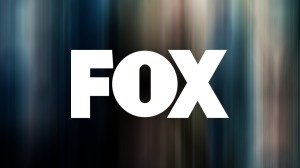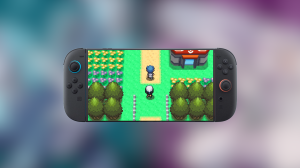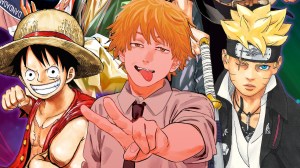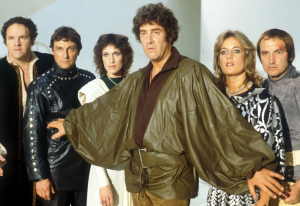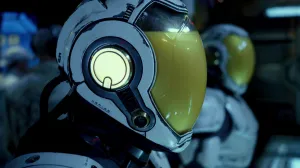After decades as one of comics’ more obscure set of superheroes fiercely loved by a cult of devoted fans, Marvel’s Cloak & Dagger made an impressive debut into mainstream culture out of the gate: the first episode racked up the Freeform network’s most impressive series premiere ratings in two years.
Videos by ComicBook.com
Before the creative team behind the series celebrated a major victory lap, executive producer and showrunner Joe Pokaski (Heroes, Daredevil), director and executive producer Gina Prince-Bythewood (Love and Basketball, Beyond the Lights), and Marvel’s Head of Television Jeph Loeb sat down for a roundtable discussion about the series and its exploration, literally and metaphorically, of the light and darkness within its teenage heroes.

On the topical storylines feature on the show:
Jeph Loeb: We’ve always felt at Marvel that the best stories that we do are the ones that take the things that are going on out there, put them through the Marvel prism, and then have them come out as what some people might see as a superhero genre show. If you come away from this and that’s all you get, then good for you, as long as you enjoyed the show.
But if you come out of it and you have a sense that the world out there is a complicated place, particularly for young people who are now so socially, economically, politically active. Their phones are 24-hour/7-day news all the time, and that to see how they themselves become heroes in our world by standing up when others are being told to sit down, and you get that out of it, then good for us. Good for us for telling that kind of story and making you have, as we like to say, “the feels.”
Gina Prince-Bythewood: But also, that’s what attracted me, too: to be able to tell this grounded story within the fantastical universe, and it started with the look of the show and being authentic, but also in the casting of two real teenagers. I have two teen boys, and they will call BS in a minute, so we wanted to make sure, given that we were dealing with these real world problems, we did not want to romanticize anything at all but stay true and be authentic. And, again, it started with the script and then us all being on the same page of the kind of story we wanted to tell.
On the freedom to incorporate edgier content into a youth-oriented Marvel series:
Joe Pokaski: Listen, I think Marvel and Freeform should both be applauded. Every time I wrote something kind of dark and edgy, I half expect a call being like, “Nah, you’ve gone too far.” And every single time it was great, like “That was great, that felt real, that felt grounded.” So, I think we live in a world where police do look at people different from each other. We do live in a world where women walking home from the ballet aren’t safe. So, I think wanted to tell the story of the world the way it is, and then present these two characters who are gonna change it as best they can.
On the potential they saw for the relatively obscure heroes at the center of the series to tell previously untapped TV superhero stories:
Pokaski: I think television, for me at least, is all about relationships. You look at any of the best shows, there’s great relationships at the center, and Tandy and Tyrone, since I started reading them in grade school, have been one of the most interesting relationships in comic books. There’s no hero and there’s no sidekick. They both need each other, they’re both equals, and I think if you wanna make a show for 100 episodes, characters are great, and characters have to be perfect, but putting a relationship like that at the center felt like a no-brainer, and that’s why I think it really works for the long format of television.
On the unique visual environments the show employs:
Prince-Bythewood: It’s interesting. It’s an interesting thing to come to TV and knowing that you don’t have the budget of some of the big Marvel films, but knowing the audience expectation is you still have to look as good as those. And so how do you do that? And for us, it made sense to be as grounded as possible, even with the effects as well, and doing a lot of things real without effects, or in camera. And props to Olivia and Aubrey, who did their own stunts, because you get to see Aubrey slam into a crypt. And in terms of the effects of hope, and Tandy being able to do that in camera and creating an interesting look.
Tami Reiker, our DP for the pilot, was incredible in helping create that, and it just felt right when we started putting it together. But it all starts with how can we be real, and authentic? And that was really the mantra.
On making the show feel distinct from other MCU-set series:
Loeb: We try. Whether or not we succeed, we can talk about, but we try to make each of the shows feel different. Sometimes it’s something as significant as being in a different city, but often times it’s the vision that the show runner has, in this particular case, the director of the pilot.
It’s important to us, because it’s in the same kind of way that, if you read Marvel comics, and you went down to the stands, you would know that Ms. Marvel is different from the Avengers, which is different from Cloak & Dagger, which is different from Daredevil, and it’s because the creative people that are telling those stories have a different vision as to what that’s going to be, and it’s really our job to support people like Joe, and Gina. And that’s how I see my role as a producer, is to make sure that they have the things that they need in order to tell the story the way they want to, to feel supported.
Pokaski: Yeah, and I think for Cloak & Dagger, we had talked early on about being a Sundance coming of age movie about two damaged souls. My friend Misha actually turned me on to Beyond the Lights, and I watched that, I’m like, “This is it, this is it.” And then I remember Gina was talking about a movie called Like Crazy, and just that feel I hadn’t seen in super hero fiction before, so it was exciting to step a little bit out of our comfort zone and do it.
On the potential for crossovers with other MCU series, despite being the only Freeform entry:
Loeb: Look, it’s something that we talk about. A large time, it has to do with scheduling in a way that you’re asking a different question that gets me into trouble to say “#itsallconnected.” But it is all connected, in the very basic sense that this is the world that we’re living in.
One of the things that Marvel is very proud about is we don’t have made-up cities, we don’t have a fictional kind of world, or police force, or anything else like that. We try to stay within the lanes of what feels like a real show, and that we carry that form show to show, and that there’ll be Easter eggs, and there’ll be little things along the way.
I think if you watch the pilot or even seen the trailer, Roxxon plays a very big part in that. Roxxon is a very big entity in any Marvel property that you’re using, and Roxxon only exists in the MCU, so, you have to, thereby, go, it is all connected simply because that’s one of the very significant points that happens during the show.
On how the show’s topics unexpectedly became hot-button topics of discussion on a national scale during shooting:
Loeb: Well, we blame Joe for what’s wrong in this country, ’cause he was writing about it and making it happen.
Pokaski: Here’s the thing, these things have always been happening, and I think people now just have phones and people in the news are being forced to pay attention and cover them as real stories instead of ignore ’em, so, it’s … The more we can talk about things like this, the more we can shine light where there hasn’t been light shone before, good.
Prince-Bythewood: And also, it’s not just about showing but creating characters, as this show’s done, that an audience can empathize with, because when you empathize with them, you can feel what they’re feeling, and I think that’s on of the issues now, where when you watch stuff on the news, it’s just that’s happening to them, as opposed feeling what it really means to lose a son or to have somebody you love addicted to drugs. So again, being able to put that within characters that we hope an audience falls in love with is how we can help change things.
Loeb: But it’s also important to us, at all times, that it doesn’t feel like we just got up on a soapbox and decided that, “OK, here’s our version of what we think the world would be,” because our feeling about that is that you can watch the news and get that, but if you’re watching Cloak & Dagger on Freeform, it’s our hope that you’re also entertained, and that you fall in love with these characters, and that you want to commercial back week after week so that we can tell 100 more stories.
It’s a shame that the stories that we’re telling are not gonna solve the problems of the world – we wish that we could have that kind of ability, but as Joe said, the more you talk about them, the better it is.
On building out the world of Cloak & Dagger without being weighed down by extreme adherence to a well-known canon:
Pokaski: It’s kind of freeing, to be honest. I’ve worked on some established properties, where you’re like, “No, you have to do this,” or, “How do we deal with this?” Now, like I said before, you have Tandy and Tyrone, you have this beautiful relationship and a power set that are kind of emotional. It is a weapon when you need it, it is a place to go somewhere else when you want to run away. It was really freeing, and to be able to reinvent Brigid O’Reilly, to some degree, to be able to reinvent Father Delgado, it felt like you could start and not let canon get in your way.

